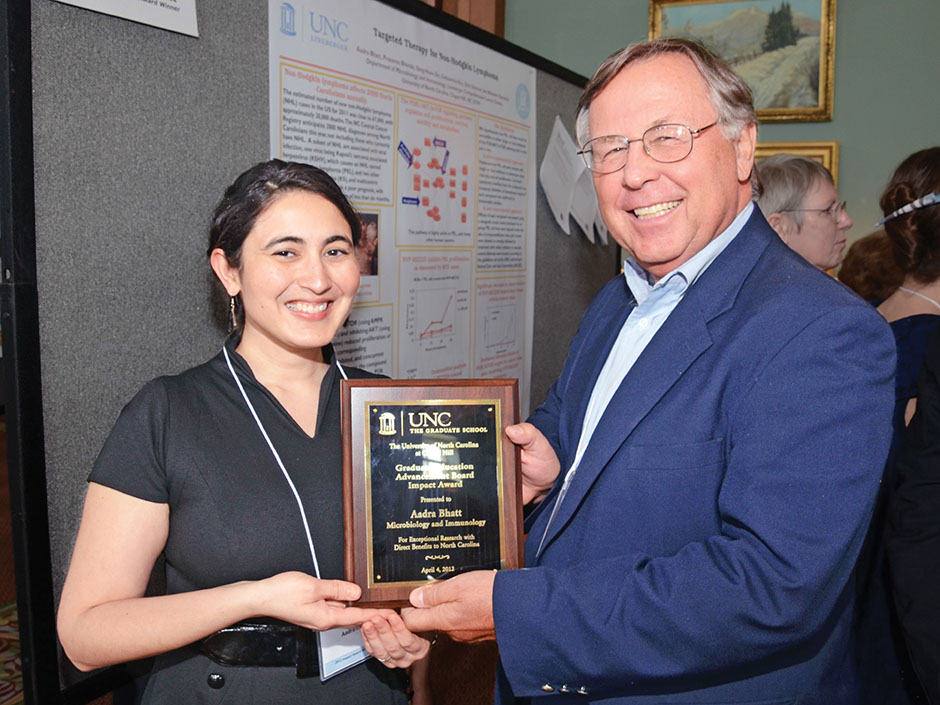Harold Glass

When meeting the refined professional that Harold Glass is today, it’s hard to picture him as a young man in a hard hat and work boots, laboring at a construction site on a hot, summer day.
Today, Glass is a Professor of Health Policy at the University of the Sciences in Philadelphia and Senior Research Fellow at the Centre for Evidence Based Policy, Kings College, the University of London. He is the founder of two companies, both of which he has since sold.
However, one summer during his doctoral education, Glass supported himself by working in the Hamilton Hall library—and as a construction worker on a building site off US 15-501. He remembers the experience with clarity.
“It was very hard, after having worked all day in construction, to focus on doing research,” he says.
That is one of the reasons Glass, who received his Ph.D. in Political Science from the University of North Carolina at Chapel Hill, is committed to supporting The Graduate School’s Summer Research Fellowship program. Thanks to private donors such as Glass, dozens of graduate students have received the opportunity to focus exclusively on their dissertation research over a summer. These students, primarily within the humanities and social and behavioral sciences, would normally have needed to interrupt their research to support themselves during this time.
In the 2010-2011 academic year, Glass provided funding that enabled two graduate students to receive summer fellowships. For the 2011-2012 academic year, he provided funding that made five summer fellowships possible. And for the summer of 2013, Glass is providing funding that will enable 10 graduate students to focus exclusively on their research.
Glass also generously gives his time to supporting graduate education at Carolina as a member of the Graduate Education Advancement Board.
“Harold is determined to do all he can to help graduate students at Carolina, and I am truly inspired by his financial commitment toward graduate student success,” said Steve Matson, Dean of The Graduate School. “As both a member of the academy and a businessman, he also offers a deeply valuable perspective on these students’ needs and on the skills they will need to successfully navigate a rapidly changing workforce.”
In his work with doctoral students, Glass is constantly connecting to the “big intellectual leap” these students take in pursuing original research and structuring that research into a dissertation. “You are undertaking such a large step where you present your ideas and your argument so your work is different than what anyone has done before. Then you must say, ‘This is my work and I will share it with everyone in the world.'”
The process is even more difficult when financial challenges potentially interrupt that work.
“Eliminating students’ financial road-blocks enables them to contribute their ideas to the world much faster,” Glass says. “And that benefits everyone.”
